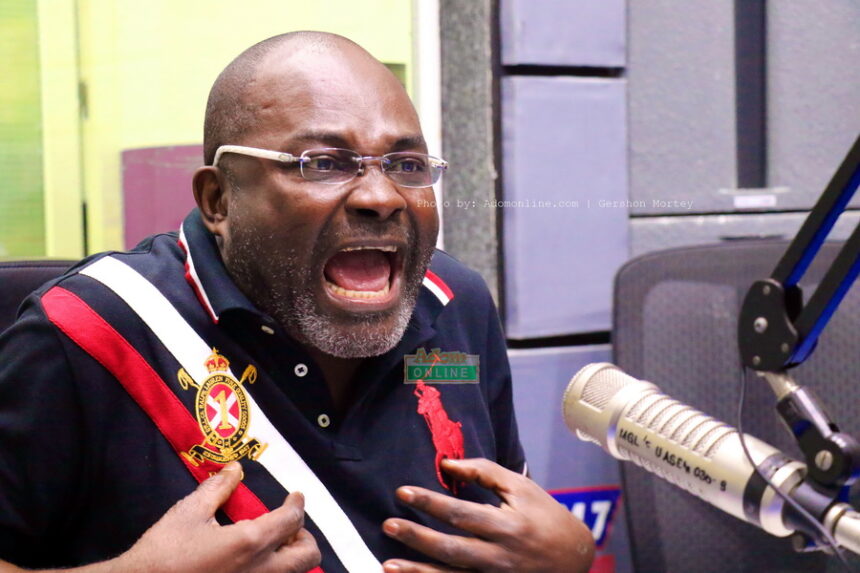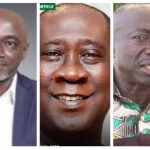A civic advocate and political strategist, J.A. Sarbah, has sparked debate with a bold new piece accusing Kennedy Agyapong of handing powerful ammunition to the opposition National Democratic Congress (NDC) during the 2024 elections. The write-up, titled “Kennedy Agyapong’s Self-Destruct Button: How One Man’s Rage Armed the Opposition to Win the War,” argues that Mr Agyapong’s public attacks on his own party, the New Patriotic Party (NPP), severely weakened its image and message.
According to Mr Sarbah, Kennedy Agyapong, in his bid to become the NPP flagbearer, made several damaging statements that were later used against the party by the NDC. “These are not whispers,” he writes. “These are his own words. Recorded. Archived. Weaponised.”
Sarbah lists what he calls “political grenades” — strong quotes and attacks launched by Agyapong — that allegedly undermined the NPP’s credibility during and after the party’s primaries. Each quote is paired with analysis on how it may have shifted public opinion or handed moral ground to the opposition.
One of the most damaging remarks, according to the report, was Agyapong’s claim that, “People are chopping Ghana’s money like nobody’s business.” Sarbah argues this quote painted the NPP as corrupt and handed the NDC “their 2024 campaign message on a silver platter.”
In another instance, Agyapong is quoted as saying, “They’re stealing and buying properties abroad… looting the country as if there is no tomorrow.” Mr Sarbah interprets this as a “nuclear strike” on the NPP’s image, particularly damaging to the party’s anti-corruption credentials.
Perhaps most controversial is Agyapong’s post-election statement, “They said don’t bring a Muslim. We didn’t listen. Now we’ve been humiliated.” Sarbah says this sectarian remark “didn’t blame policy, or message, or mistakes; he blamed religion—unworthy of a national leader.”
The importance of Mr Sarbah’s write-up lies in its documentation of how internal party conflicts, especially when made public, can shape national election outcomes. In an era where digital media archives everything, the piece urges voters and political actors alike to pay attention to the long-term impact of public political speech.
“This isn’t just about Kennedy Agyapong,” Sarbah concludes. “It’s about the future of political accountability. Let no one rewrite what Kennedy said with his own lips.”
Political analysts have described the report as a cautionary note to Ghana’s political elite. In a time of rising voter cynicism, some say the NPP’s 2024 loss was not just due to the opposition’s strength, but self-inflicted wounds from within.
As Ghana approaches the next election cycle, J.A. Sarbah’s write-up serves as a reminder: in politics, your words don’t disappear. They return—recorded, remembered, and replayed.




